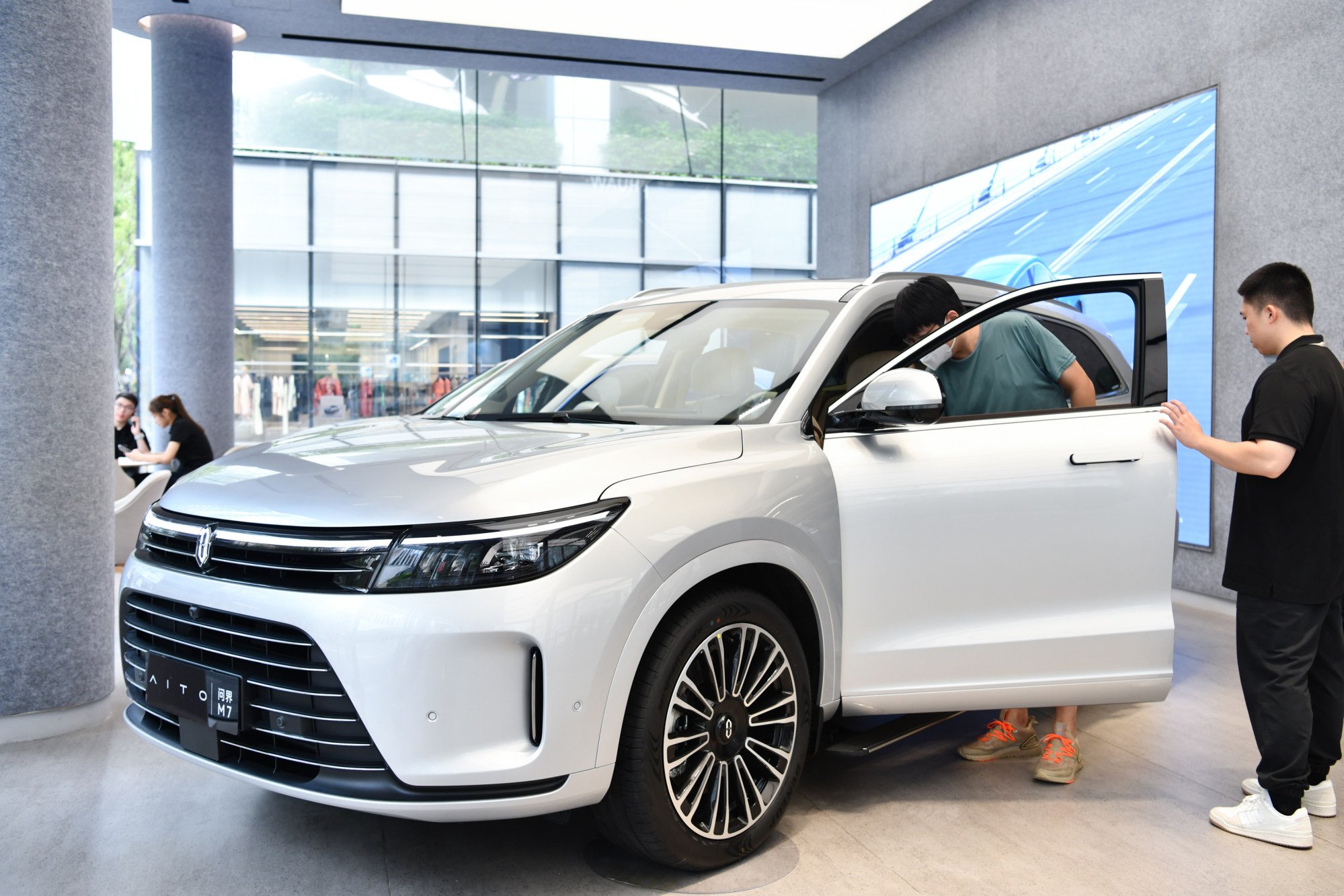‘Intelligent’ features such as autonomous driving technology and voice-activated controls are what sell cars in China now, executive at Shanghai car dealer says. Young drivers are ‘eagerly awaiting Xiaomi’s EV’: analyst. — SCMP
New models introduced by technology firms are redrawing China’s electric vehicle (EV) landscape, as premium cars with cutting-edge digital features such as automation lure mainland Chinese drivers away from segment leader Tesla’s Model 3 and Model Y, industry observers said.
In China, the world’s largest EV market, where “intelligent” battery-powered vehicles are a must-have, Huawei Technologies, Baidu and Xiaomi are challenging established players and heightening concerns about overcapacity and a price war.
“Intelligent features such as autonomous driving technology and voice-activated controls are what sell cars (in China) now,” said Zhao Zhen, a sales director with Shanghai-based dealer Wan Zhuo Auto. “It is not like a decade ago, when horsepower and exterior design attracted Chinese motorists.”
The intelligent features in demand also include facial recognition, over-the-air software upgrades, phone-linked features and self parking.
Aito, a car brand developed by telecoms equipment giant Huawei, said on Wednesday that it had received 90,000 orders for its M7 sport-utility vehicle (SUV) just two months after the EV hit the market. Models with monthly deliveries of 10,000 units or more are viewed as blockbuster products in China’s automotive sector.
In late October, JiYue01, the first production model developed by search-engine company Baidu, secured nearly 10,000 orders within six hours of its presales starting.
Smartphone vendor Xiaomi is likely to begin selling its first car – similar to the Model 3 – soon, after it submitted an application to the regulator for approval to start manufacturing the SU7 sedan.
“Young drivers looking to own a car that can be used as a smartphone are eagerly awaiting Xiaomi’s EV,” said Gao Shen, an independent analyst in Shanghai, referring to the use of video conferencing and video game smartphone apps in smart EVs. “The premium EV segment will see cutthroat competition in the coming months.”
Technically, Xiaomi can start assembling and selling its first car after it obtained the go-ahead from China’s ministry of industry and information technology. According to a regulatory filing published by the ministry on Wednesday, BAIC ORV, Xiaomi’s production partner, plans to build two versions of the SU7 for the smartphone vendor.

The single-motor edition will use BYD’s lithium iron phosphate batteries and is expected to reach a top speed of 210 kilometres per hour (kph). A dual-motor version fitted with CATL’s nickel and cobalt-based lithium batteries, is expected to reach speeds of up to 265kph.
China’s EV market is crowded with 200 players, leading to concerns about overcapacity.
Tesla, the current leader in the mainland’s premium EV segment, reported month-on-month declines in deliveries for two consecutive months in September and October due to intensifying competition.
Its Shanghai Gigafactory handed over 28,626 units to mainland customers in October, down 34.2% from a month earlier, according to data from the China Passenger Car Association (CPCA). This followed a 32.8% month-on-month slide in September.
The US carmaker is also being trailed by three top Chinese EV start-ups: Li Auto, Xpeng and Nio.
The CPCA forecast earlier this year that the country’s EV industry will achieve 50% year-on-year sales growth in 2023, delivering 8.5 million units on the mainland. – South China Morning Post





